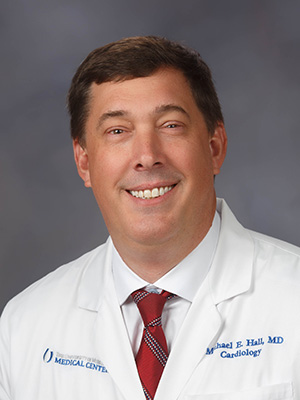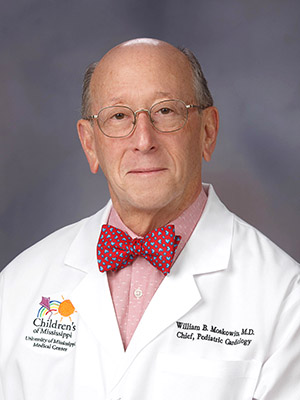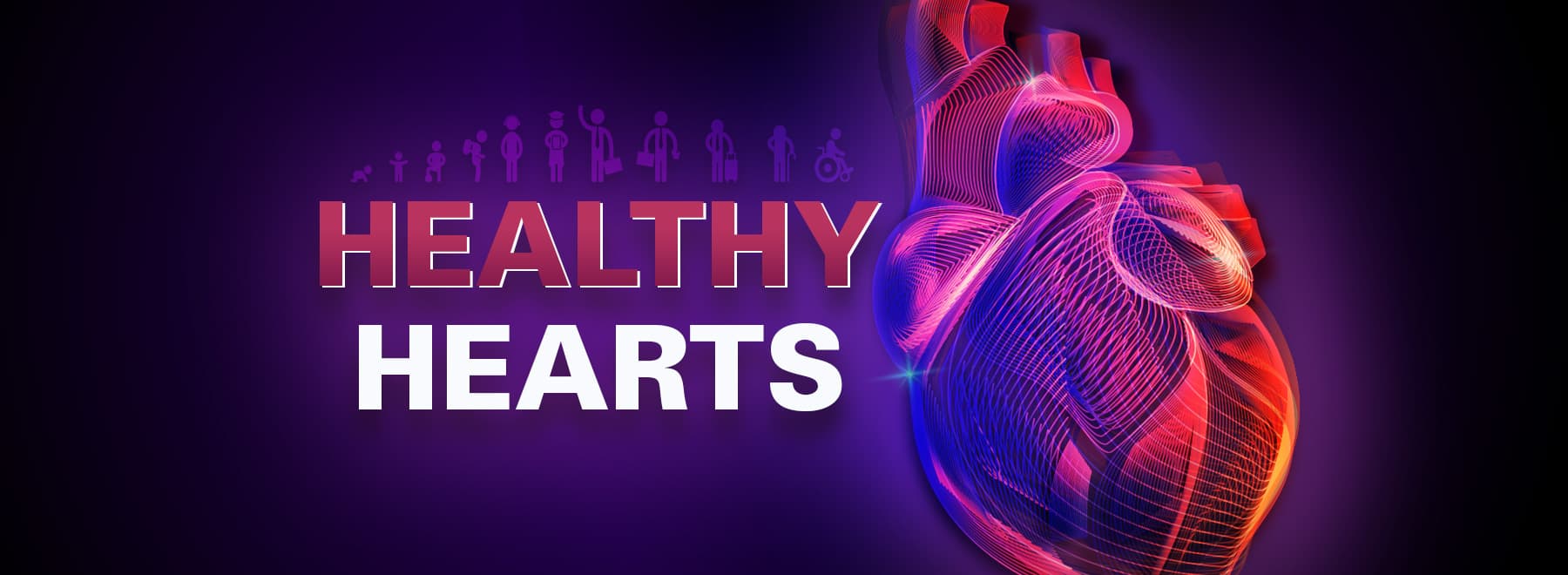Cardiovascular care needs link Baby Boomers, Millennials
What do Gen-Xers and Boomers, Millennials and 7-year-old Sybil Cumberland have in common?
They all need to take care of their hearts.

“Heart health is important for everyone,” said Dr. Michael Hall, associate professor of cardiology at the University of Mississippi Medical Center. “There are healthy choices that can be made at every age to keep your heart working well.”
Several heart-related campaigns are celebrated this month, including National Wear Red Day Feb. 7 and Congenital Heart Defect Awareness Week Feb. 7-11. These events are aimed at increasing awareness of heart disease and heart health.
In Mississippi, cardiovascular disease is the leading cause of death, accounting for more than a third of all deaths, according to Mississippi Department of Health statistics. Nationally, heart disease is the No. 1 cause of death for women, killing more women than all forms of cancer combined. Men have a higher rate of cardiovascular disease, with 51.2 percent of males older than 20 having some form of it, compared to 44.7 percent of females.
Healthy habits start young
Cumberland was named Children’s Miracle Network Hospitals Champion for Mississippi in January. After two surgeries to correct a congenital heart defect, she visits a Children’s of Mississippi pediatric cardiologist regularly.
“I don’t remember having my heart surgeries because I was a baby then,” Cumberland said, “but I see my doctor at Children’s of Mississippi to make sure my heart stays healthy.”
The Preston native is a member of “Generation Z,” the cohort of Americans born after 1997.

About one in every 100 babies has a congenital heart defect, the most common type of birth defect. According to the U.S. Centers for Disease Control and Prevention, about 1 million children live with congenital heart defects. Because of medical advances, there are now more adults – about 1.4 million – than children now living with congenital heart defects.

Childhood is the perfect time to make heart-healthy habits, said Dr. William Moskowitz, chief of pediatric cardiology at UMMC and co-director of the Children’s Heart Center.
“We encourage everyone to live in the healthy ZIP Code of 95210,” Moskowitz said. “That’s at least nine hours of sleep for kids (that number is seven for adults), five servings of fruits or vegetables a day, a limit of two hours of recreational screen time (TV, computer, phone and video games combined), one hour of physical activity (at least 30 minutes for adults) and zero sugary drinks (sodas and fruit drinks).
“We want to instill in our youths a healthy lifestyle at an early age, and it is the duty of all of us to educate families.”
Quit vaping, or don’t start
A smart decision Millennials – those born between 1981 and 1996 – and Generation Z members can make for their hearts is to stay away from vaping, Hall said.
“Vaping isn’t safe,” he said, “and at a time when the cigarette smoking rate in the United States is lower than it’s ever been – about 15 percent – marketing of these new products and additives, such as flavors that vaping offers, may encourage a younger generation to use these products and become addicted to nicotine.
“Emerging evidence suggests that the nicotine and additives in e-cigarettes can harm smokers’ cardiovascular systems.”
Almost a third of deaths from coronary heart disease can be attributed to the use of nicotine products and second-hand smoke, according to the American Heart Association. Research has shown that smoking and nicotine use increases the heart rate, tightens major arteries and can cause an irregular heartbeat.
Know heart failure’s signs
About 6.5 million American adults have heart failure, which happens when the heart cannot pump enough blood and oxygen to support the body’s organs. U.S. Centers for Disease Control and Prevention statistics show the condition contributed to one out of every eight deaths in the country.
“Heart failure is one of the leading causes of hospitalization and death in the U.S.,” Hall said. “Hypertension is often called the silent killer because you may not know you have it unless you get your blood pressure checked.
“High blood pressure leads to thickening of the heart muscle, and that can lead to heart failure if not controlled.”
Though all ages can have heart failure, Hall said the risk increases for those in their 50s and older – those in Generation X, born between 1961 and 1981, and Baby Boomers, born between 1946 and 1964.
“About one in five people over 40 will develop heart failure in their lifetimes,” he said, “and once someone has been diagnosed with heart failure, they have about a 50 percent likelihood of dying within the next five years.”
Signs of heart failure include shortness of breath, persistent coughing, swollen feet or legs, fatigue, nausea and confusion. Medications and some procedures can make a dramatic difference in heart failure patients’ lives, Hall said, “but they need to be accompanied by lifestyle changes, such as quitting smoking, losing weight, being active and eating a healthy, low-sodium diet.”
Heart-healthy tips
• Know your numbers: Ask your doctor to check your blood pressure and cholesterol.
• Stop smoking and don’t vape.
• Lose weight: Obesity increases blood pressure.
• Make healthy food choices for yourself and your family and reduce the amount of sodium in your family’s diet –
an ideal limit is 1,500 mg per day for adults.
• Exercise regularly and teach children the importance of staying active.
The above article appears in CONSULT, UMMC’s monthly e-newsletter sharing news about cutting-edge clinical and health science education advances and innovative biomedical research at the Medical Center and giving you tips and suggestions on how you and the people you love can live a healthier life. Click here and enter your email address to receive CONSULT free of charge. You may cancel at any time.



